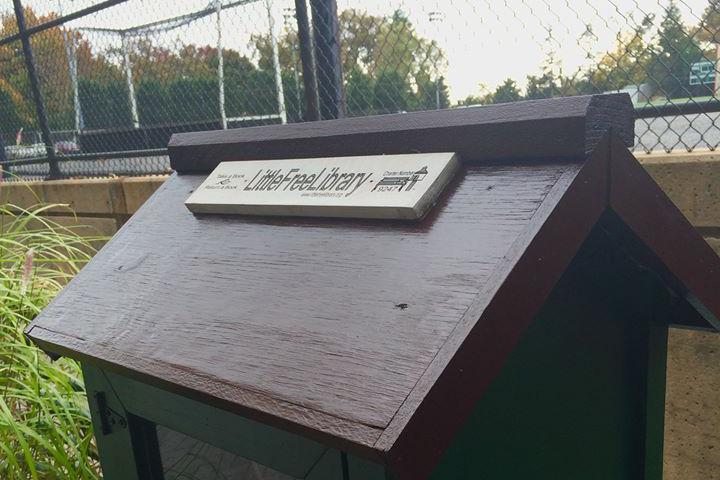You’ve probably seen the Little Free Library crates more and more over the past few years. The book equivalent of “leave a penny, take a penny,” these simple do-it-yourself boxes of free books have spread from one open-air Wisconsin porch to more than 10,000 locations worldwide. The original goal had been to surpass the amount of libraries started by Andrew Carnegie—2,509. And as communities saw themselves coming together around these boxes of free books, more and more have taken on the pleasure of hosting one of these Little Free Libraries.
This all started with Todd Bol, a guy out in Wisconsin who, on a whim, built a wooden box out of an old garage door, filled it with books, and left it at the end of his yard. He nailed a “FREE BOOKS” sign to it and dedicated it to his mother. His neighbors loved it, and the word seemed to spread like wildfire.
Todd gave a TEDx talk in 2013, where he said that people would express their gratitude over the free library, saying “I’ve met more neighbors in 5-7 days than I have in 20-30 years.” This seems to be the true thrust of the LFL movement. Reading has seemingly become a passive hobby. The internet has perpetuated a sort of at-arms-length approach to interacting with texts, the only resource available being fan forums or certain websites’ comments section. There aren’t many book clubs around and the numbers of libraries on the whole have been dwindling. Many library budgets have been slashed, a community centered around print books just doesn’t seem that important to lawmakers in lean times. Social connections have been routinely found to be tied to positive emotions, seen in plenty psychological studies and just plain common sense. And these Little Free Libraries are a fantastic way to draw people who already live near each other together through similar ideas in these books.
Fortunately we have a Little Free Library here on campus, right outside of the College Center. Its number 9247 if you’re looking for it on the LFL website. The library is a relatively new addition to our campus, a holdover from the “Book Places” exhibit held in the Loyola Notre Dame library last year. The exhibit was curated by Dr. Jean Lee Cole and her EN 379 Novel In America class. Multiple Loyola students, both graduated and current, played key roles in getting our Little Free Library to where it is today, including Cooper Davis and Courtney Cousins. The library is now in the hands of the Loyola Literary Society, including members Sean Creedon and Wes Peters who, along with Dr. Melissa Girard, have taken on the task of restocking our precious pile of books as necessary.
While it might seem silly to host a free box of books when the massive Loyola/Notre Dame library is just a few minutes away, Loyola’s participation in a movement of this nature is symbolic, yet critical. We can’t simply sit back and clap for those who organize these libraries. No, solidarity is the key to moving forward. The higher education stamp of approval on the free libraries is not exactly necessary, but helps give the LFLs everywhere extra thrust. Plus, the act of reading a print book should be endorsed at all times. Dr. Cole, when positioning the Little Free Libraries against the internet, commented “the pleasures of losing oneself in a book, reading for hours, seems to have been lost in this era of continuous stimulation and distraction.”
The mission statement of the Little Free Library movement is listed as thus: “To promote literacy and the love of reading by building free book exchanges worldwide, and to build a sense of community as we share skills, creativity and wisdom across generations.” These LFLs are something everyone should check out more, especially since we have the privilege of having one right on our campus.
(photo Lisa Potter / The Greyhound)







































































































